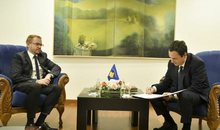
 Flash News
Flash News
Mass poisoning in Gramsh's garden, Elbasan Prosecutor's Office launches investigations
Attempted to kill 58-year-old man with axe in Fier, father arrested, son wanted
Explosion with explosives in a bar in Berat
A car caught fire on the Fier-Lushnje road
Shuhet në moshën 86-vjeçare regjisori i njohur Piro Milkani
The session to constitute the Kosovo Assembly fails for the 21st time
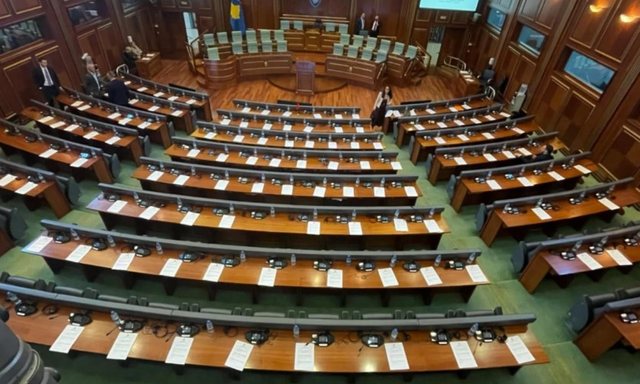
The deputies of the Kosovo Assembly failed on Sunday - for the 21st time in a row - to constitute the ninth parliamentary composition, resulting from the February elections.
The failure to form a new Parliament has plunged the country into a political impasse, leaving it without a new government, more than three months after the elections.
Successive failures are occurring despite calls from within and outside the country to move forward with the creation of institutions.
On Sunday, lawmakers refused for the thirteenth time in a row to form a commission to oversee a secret ballot for the new head of the legislative body.
The issue of secret balloting – which was proposed on May 1 by the chair of the session, Avni Dehari, after the Vetëvendosje Movement (LVV)'s nominee for Speaker of the Assembly, Albulena Haxhiu, failed in several votes to receive the 61 votes needed to be confirmed in the post – has been sent to the Constitutional Court of Kosovo by the parties that were in opposition in the previous legislature.
They say that the way LVV is attempting to have the speaker of parliament voted through a secret ballot is unconstitutional, and they have asked the Constitutional Court to take "a temporary measure to prohibit the holding of sessions, until it addresses this matter as a priority and makes a decision."
The Democratic Party of Kosovo (PDK), the Democratic League of Kosovo (LDK), the Alliance for the Future of Kosovo (AAK) and the Serbian List again refused, during the continuation of the constitutive session on Sunday, to propose a representative who would ensure the smooth conduct of the secret ballot.
The constitutive session will continue on Tuesday, May 27.
So far, MPs have only passed two items on the agenda of the constitutive session: the report of the Temporary Committee for the Verification of Mandates and the oath of MPs.
But the process has stalled at the third point: the election of the speaker of parliament.
Haxhiu of LVV is being considered a divisive figure by two parliamentary parties: PDK and AAK.
These two entities have requested that LVV propose another name for the speaker of parliament. LDK, meanwhile, has said that it has no votes for any of LVV's nominees for the position of speaker of parliament.
The nomination for parliamentary speaker is the exclusive right of the election winner, LVV, which insists that Haxhiu deserves to be elected and, although it has sought a political agreement with other parties, has ruled out the possibility of bringing forward a candidate other than itself.
On May 15, after a meeting called by the President of Kosovo, Vjosa Osmani, with representatives of political parties, Osmani said that there was no agreement on the constitution of the Assembly, but added that he had seen a "minimal willingness" among party leaders to find a solution to this issue.
The deputies must elect the president and five vice presidents to finally constitute the new Assembly.
Only after the constitution of the Assembly can the new Government be formed.
This crisis comes after no party won the majority to govern alone and there is a lack of agreement between them to create a joint majority.
Vetëvendosje came first, winning 48 seats, 13 short of the minimum 61 needed to form a new government on its own. PDK came second with 24 seats, LDK third with 20, AAK-Nisma 8 and Lista Srpska 9.
Kurti said on May 20 that during the government formation process, he would be ready for compromises and concessions.
Kurti mentioned minorities as possible partners, as well as Fatmir Limaj's Social Democratic Initiative.
During the week, the European Union's top diplomat, Kaja Kallas – who visited Pristina for the first time on Thursday – called on parliamentary parties to cooperate to unblock the political deadlock in the country.
Likewise, several civil society organizations in the country called on the parties to "reach an agreement that ends the blockade."
They said that the institutional crisis with the blocking of the constitution of the Assembly "has crossed every tolerable limit and is damaging not only the Assembly, but also the functioning of the entire democratic and institutional system of the country."/REL
Latest news


The rain is leaving, next week starts with clear weather
2025-05-25 15:59:54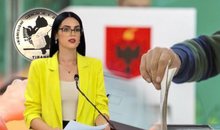

How to prevent hormonal changes, the most necessary tips
2025-05-25 15:27:25
The Times Analysis: Will universities survive ChatGPT?
2025-05-25 15:16:08

With drugs and high speed, Albanian loses his life in an accident in Italy
2025-05-25 14:40:36



Israeli strikes kill 20 people in Gaza, including a journalist
2025-05-25 13:02:47

52-year-old dies at work in Tirana, boiler falls on his head
2025-05-25 12:13:07
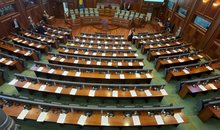
The session to constitute the Kosovo Assembly fails for the 21st time
2025-05-25 11:51:18
New details emerge from the explosion in Berat, two brothers wanted
2025-05-25 11:23:38
Last tributes to Piro Milkani, the director is being buried in Sharra today
2025-05-25 11:01:54
Foreigners pay more for rent than Germans
2025-05-25 10:41:28
Arlind Kajoshi, suspected of beating Vladimir Bruçi, arrested in Shkodra
2025-05-25 10:32:42
Attempted to kill 58-year-old man with axe in Fier, father arrested, son wanted
2025-05-25 10:05:15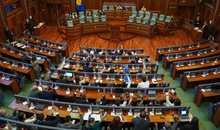
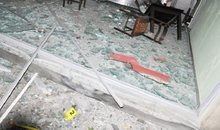
Explosion with explosives in a bar in Berat
2025-05-25 09:42:00
Private railway management
2025-05-25 09:18:32


A car caught fire on the Fier-Lushnje road
2025-05-25 08:41:45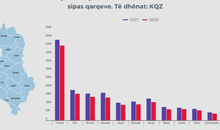
Voters who were absent in the parliamentary elections
2025-05-25 08:37:28
Weather today: Cloudy and temporary rain in some areas
2025-05-25 08:17:25
Morning Post/ In 2 lines: What mattered yesterday in Albania
2025-05-25 08:02:15
Shuhet në moshën 86-vjeçare regjisori i njohur Piro Milkani
2025-05-24 21:56:38
Kujdes nga mashtrimet online, si teknologjia nxit krimet financiare
2025-05-24 21:32:33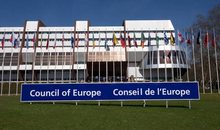

Opposition's denunciations, Xhaferri: We expect the US to listen to us
2025-05-24 20:48:06
How did PSD "capture" over 50% of the votes in rural areas?
2025-05-24 20:29:54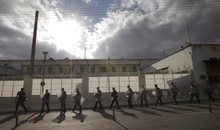
The Albanian woman with the s*x went to meet her husband in Koridalos prison
2025-05-24 20:09:15
Ancelotti says goodbye to Real Madrid in tears: I love you with all my heart!
2025-05-24 19:49:08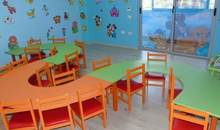
Poisoning in Gramsh, parents of children warn of protest
2025-05-24 19:21:36
Taulant Xhaka retires from football
2025-05-24 18:53:35


Incident in the north, Serbia issues arrest warrant for Kosovo police officer
2025-05-24 17:59:24

SPAK conducts inspections at Tirana Municipality, 5 phones seized
2025-05-24 17:19:23
FIFA President congratulates Egnatia on the championship title
2025-05-24 17:00:15

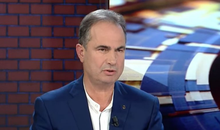
Boçi: The elections were annulled, the DP will continue the fight
2025-05-24 16:06:58
Man reports to police: Wife took my son and ran away, I'm asking for help
2025-05-24 15:45:55
France and Germany with a "non-paper" for Republika Srpska
2025-05-24 15:29:29

Beware of online scams! Here's how technology fuels financial crimes in Albania
2025-05-24 14:53:33

The US military "landed" in Kosovo as part of "Defender Europe 25"
2025-05-24 14:42:19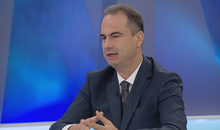
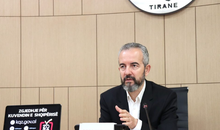



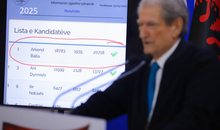

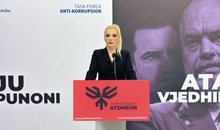

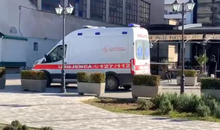
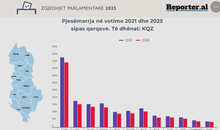
BIRN Analysis: Voters who were absent in the parliamentary elections
2025-05-24 11:19:40

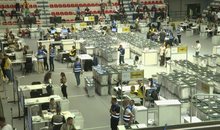


Bus collides with municipal police car in Fier, 6 injured
2025-05-24 09:25:01
Foreign exchange, May 24, 2025
2025-05-24 09:07:27

With rain and storms, get to know the weather forecast
2025-05-24 08:32:03
What do the stars have in store for you today?
2025-05-24 08:17:04
Morning Post/ In 2 lines: What mattered yesterday in Albania
2025-05-24 08:00:34




Tirana Lake Park, a campaign center for Noizy. The signatory is silent
2025-05-23 21:55:02



What's happening in Gaza, the struggle for survival in times of war in pictures
2025-05-23 21:02:54
DW: Germany strengthens the return of illegal migrants!
2025-05-23 20:39:57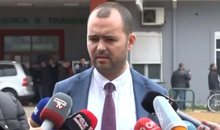
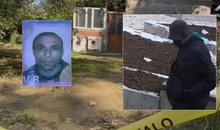

Knife attack at Hamburg train station, 12 injured
2025-05-23 19:54:58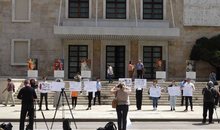
120 children go missing every year in Albania, 12 still missing in 30 years
2025-05-23 19:35:35
US court suspends order banning Harvard from admitting foreign students
2025-05-23 19:22:41
Zodiac signs that become luckiest after the third decade of life
2025-05-23 19:19:06
Igli Tare officially appointed as Milan's new Sporting Director
2025-05-23 19:01:12
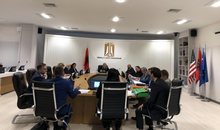



Istanbul Agreement, Ukraine and Russia exchange 800 prisoners
2025-05-23 17:54:20